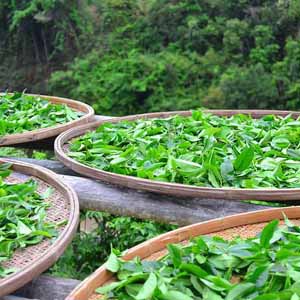Therapeutic effectiveness of green tea leaf extract on clinical symptoms in children suffering viral gastroenteritis: A randomized clinical trial

Accepted: 25 May 2022
HTML: 9
All claims expressed in this article are solely those of the authors and do not necessarily represent those of their affiliated organizations, or those of the publisher, the editors and the reviewers. Any product that may be evaluated in this article or claim that may be made by its manufacturer is not guaranteed or endorsed by the publisher.
Authors
The use of tea plant extract has been reported to reduce viral complications, but its role in improving viral gastritis has not been investigated. The aim of this randomized clinical trial was to evaluate the effect of green tea consumption in improving pediatric viral gastroenteritis. This clinical trial study was performed on children aged 12 to 17 years with diarrhea who were not treated within 48 hours of the onset of clinical symptoms during September 2019 to September 2020. The children were randomly assigned to a green tea leaf extract (GTE) tablet. The placebo group was considered as a control. Treatment (prescribing the tablets) was continued until a Bristol Stool Scale of 3 or 4 was obtained. Two groups were compared in terms of clinical symptoms. The complete and partial improvement was revealed in 63.2% and 31.6% respectively in the GTE group while only in 15.8% and 57.9% respectively in control group indicating a significant difference (p <0.001). The increase in the number of tablets led to higher improvement rate in response to GTE prescription. The mean hospital stay in GTE and control groups was also 1.66 ± 0.63 days and 3.36 ± 0.4 days indicated shorter hospitalization in former group (p < 0.001). The use of GTE leads to effectively improve the diarrhea as well as to reduce the hospital stay in children suffering viral gastroenteritis.
How to Cite
PAGEPress has chosen to apply the Creative Commons Attribution NonCommercial 4.0 International License (CC BY-NC 4.0) to all manuscripts to be published.

 https://doi.org/10.4081/ejtm.2022.10606
https://doi.org/10.4081/ejtm.2022.10606



